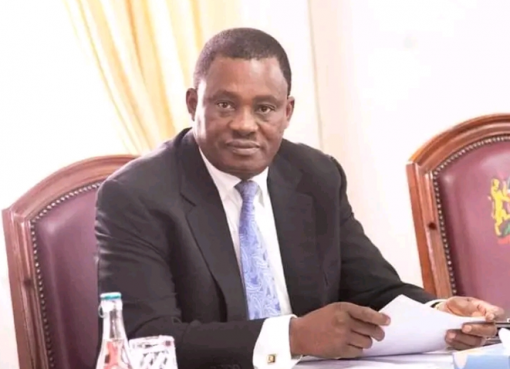Autism in Kenya is one of the conditions where evidence-based intervention awareness is still lacking and according to the Autism Society of Kenya estimations, the disorder affects approximately four percent of the population, translating to one autistic child for every 25 children.
According to Autism Support Center (Kenya), Autism Spectrum Disorder (ASD) is a complex disorder of brain development associated with difficulties in social interaction, verbal and nonverbal communication, and repetitive behaviours.
However, the majority of autistic children in Kenya especially in rural areas do not attend school because of the lack of autism schools in their jurisdiction, poverty levels, and lack of autism awareness.
Caroline Kisuge the Director of Jonathan Ray of Hope Foundation, a facility that provides therapy to cerebral palsy and autistic children said that she decided to start the facility to help the autistic children in Migori.
The Foundation located in Rongo Sub County is assisting autistic children with the necessary therapeutic treatments to help address the sensory development millstone that includes the development of speech.
“I am creating awareness through my autism facility to urge and request stakeholders and county government in partnership with the national government to set up an autism school in Migori,” noted Kisuge.
The foundation’s aim is to achieve a transformation towards a neuro-inclusive world for all, to spread awareness and encourage acceptance in the community and be able to love, understand, support and educate autistic children in the county.
The facility has so far 20 day-care autistic children that are supported by one staff making it impossible to effectively cater to a larger number.
Kisuge who is also an autistic teacher by profession emphasised that parents cannot afford shadow teachers; a trained professional who provides one-on-one support and assistance to a student with autism which has made it impossible for the foundation to cater to a larger group of autistic children.
She acknowledged that some parents were forced to take their autistic children as far as Kakamega incurring huge costs that sometimes superseded the school fee itself.
Although therapy is expensive, she disclosed that she started the facility to help autistic children in their developmental process.
She added that the facility would also help to reduce poverty by giving parents that have autistic children time to engage in other productive engagements rather than having a 24 hours care for their children.
The official underscored that it has been difficult to advocate for children with autism because of various barriers like cultural norms and financial constraints.
Kisuge called upon the National Council for Persons with Disability (NCPWD) to roll out programmes that could assist children with autism as well as give opportunities to adults with autism to represent and articulate their issues at the NCPWD board.
Elizabeth Akoth a parent to a child with autism from Rongo Sub County acknowledged that society does not understand her son’s behavioural ways. She claimed that lack of autism awareness has reduced society to think that her son is bewitched.
She affirmed that autistic and hypersensitive children are seen as agitators in society because the community does not understand them. She noted that proper sensation would help the community to have a positive image of what it was like living with autism.
Akoth also explained that it has been difficult to find a school that could accommodate his child.
“There are no autistic schools in Migori making it impossible for our children to access their rightful education. It would have been better if at least each county had a disabled school that caters to autistic students in the society to access education, a right that every child should be able to enjoy,” said Akoth.
By Geoffrey Makokha



